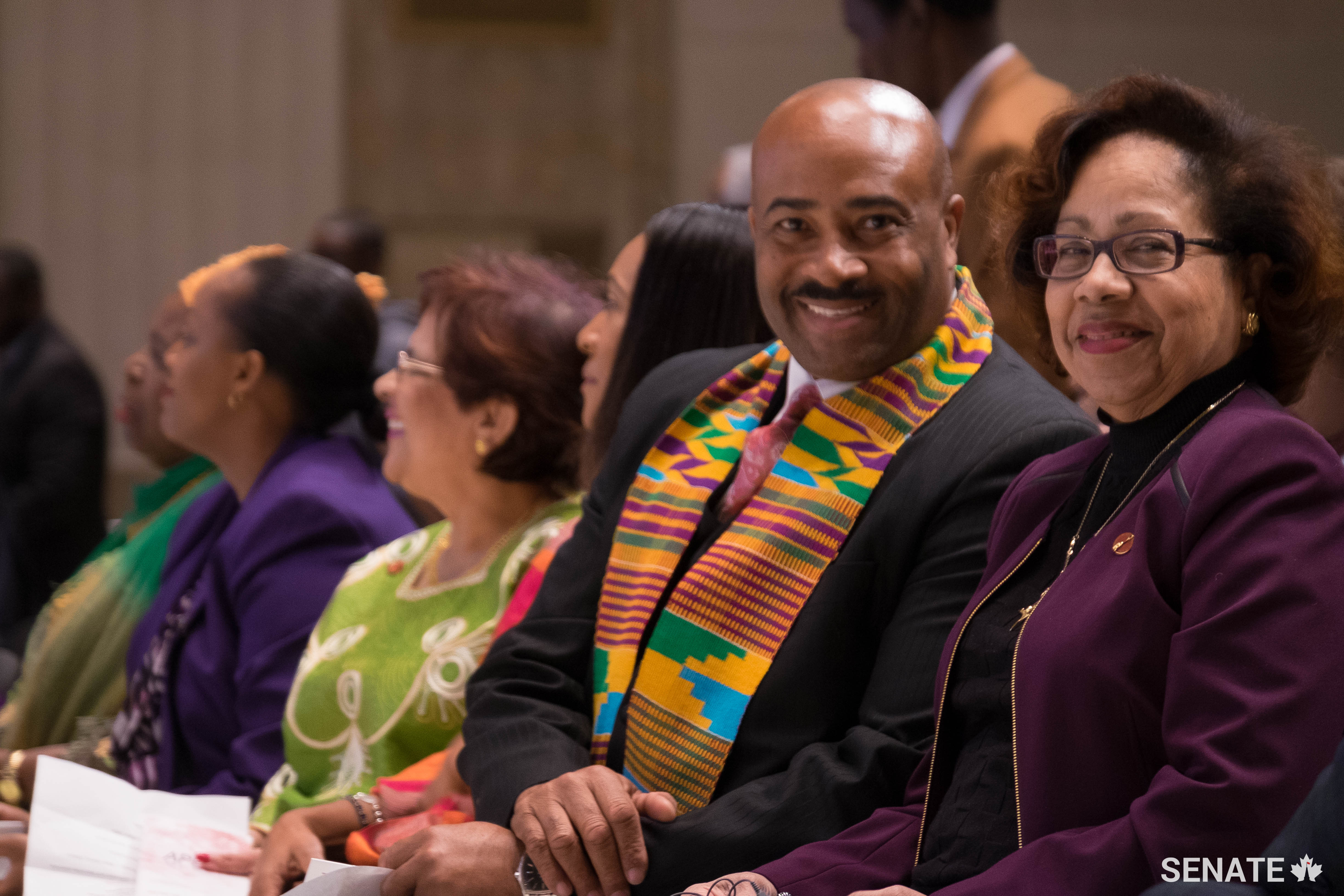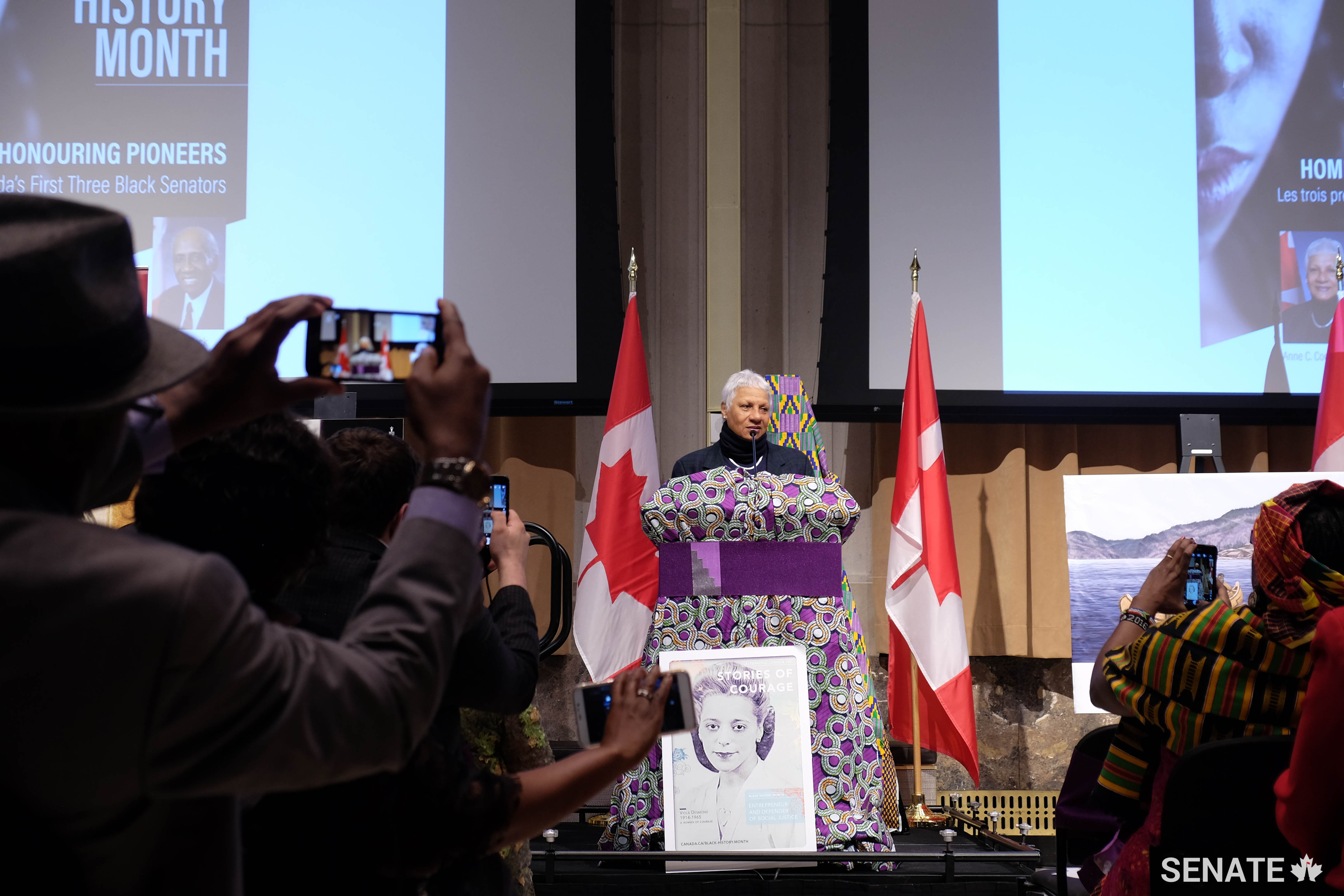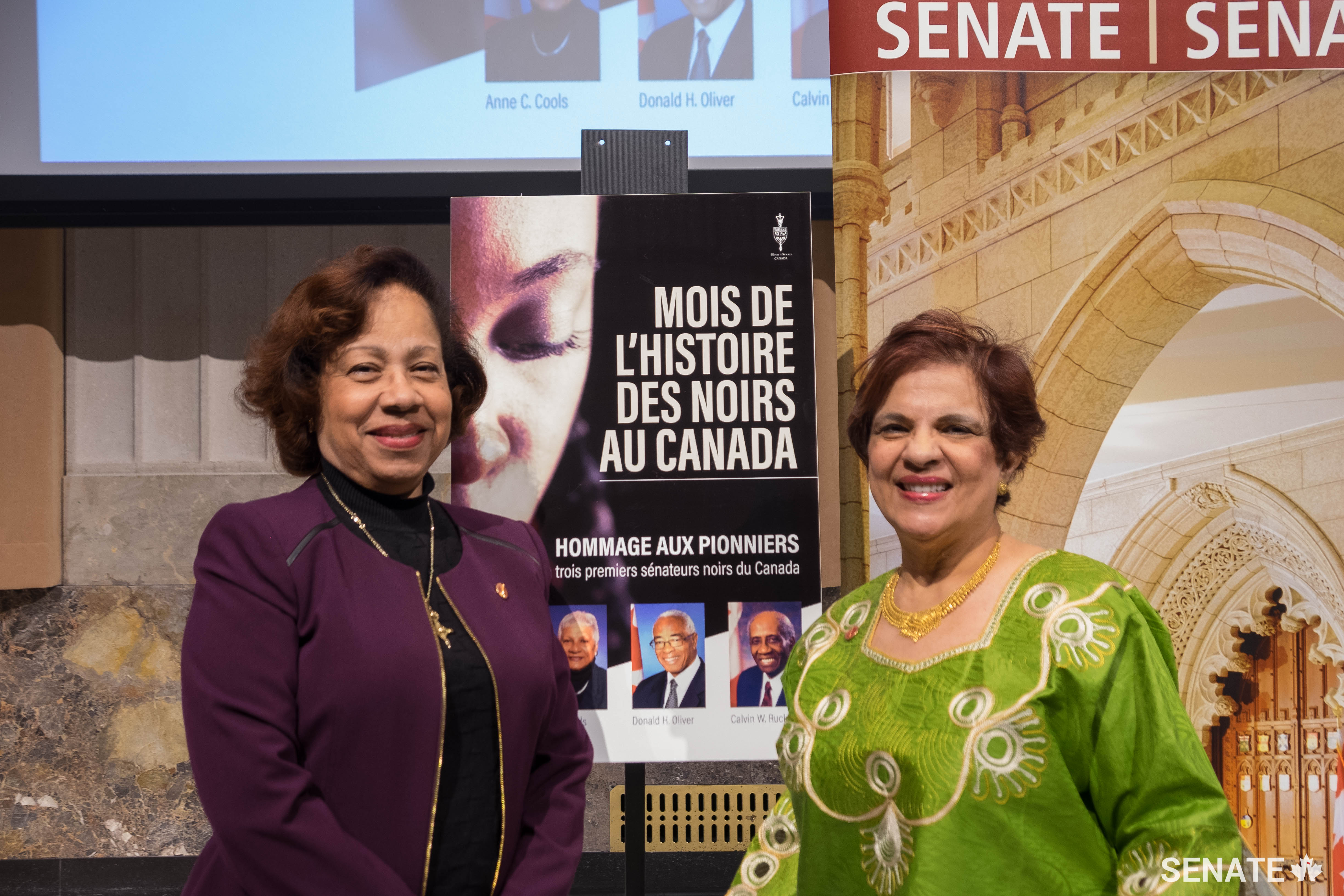Senators host celebration of Black History Month

Some arrived in Canada more than 400 years ago. Some are arriving today. Some have still yet to arrive.
But on a chilly February evening in the nation’s capital, this diverse people came together to celebrate their shared heritage and history.
These are black Canadians. This is black history. This is Canadian history.
This is Mathieu Da Costa — the first black person to arrive in Canada, coming with Samuel de Champlain as a free man and interpreter in 1608. These are the black Loyalists who came to Nova Scotia after the American Revolution. These are the thousands of black volunteers who fought for Canada in the War of 1812. These are the tens of thousands of blacks fleeing slavery in the 1800s via the Underground Railroad.
These are also the 250,000 Jamaican Canadians, the 140,000 Haitian Canadians or the 30,000 Nigerian Canadians who’ve all established themselves in Canada and contributed to its growth and cultural rebirth since the 1960s.
This is Viola Desmond, who stood up for equality long before Rosa Parks sat down. This is Lincoln Alexander, the first black MP elected to the House of Commons. This is George Elliott Clarke, renowned poet and playwright, currently serving as Canadian Parliamentary Poet Laureate. Heck, even Jackie Robinson got his start in Montreal!
Black Canadians have come from multiple continents, speak many languages and observe different religions. Black Canadians have been teachers and entrepreneurs, artists and activists.
Black Canadians are senators.
Hosting the event to celebrate Black History Month were Senators Don Meredith, Marie-Françoise Mégie and Mobina Jaffer. Also in attendance was Senator Anne C. Cools — who broke a racial barrier in Canada’s Senate eight years before the first black woman was elected to the United States Senate in 1992.
The history of black people in Canada is not without blemishes. Nevertheless, black Canadians have grown and prospered even in the shade of discrimination.
“No people can adequately increase their social impact without understanding where they were, where they are, and where they are going,” Senator Meredith said.
“No people can rise as a single powerful body, without collectively grasping the calloused hands of those who have done the difficult work before and remain in the trenches to secure empowerment of their kinsmen.”
Senator Mégie, Canada’s first Haitian-Canadian senator, recalled the journey of her community to Canada.
“The first group of immigrants from Haiti arrived in Quebec in the 1960s, fleeing the dictatorship of François Duvalier and attracted by the linguistic reality of Quebec,” Senator Mégie said.
“Most settled in Montreal between 1967 and 1977 owing to the program ‘l’Opération mon pays’, that helped many Haitians regularize their status.”
And what a powerful message in the name of this program! Mon pays — my country — is Canada.
“I’m of Indian heritage but was born in Africa. My father fought for independence in Uganda,” Senator Jaffer said.
“You know we often ask, ‘What is a Canadian?’ but we don’t really know what a Canadian looks like. Well the same goes for Africa — it’s a multicultural continent of many colours.”
Canadians of African descent have found a home like few others in this country. And while February is a great opportunity to celebrate black history, senators showed that there’s enough to celebrate 12 months a year.



Note to readers: The Honourable Don Meredith is a former senator. For more information, please refer to the Library of Parliament Archives.
Related articles
Tags
Committee news
Senators host celebration of Black History Month

Some arrived in Canada more than 400 years ago. Some are arriving today. Some have still yet to arrive.
But on a chilly February evening in the nation’s capital, this diverse people came together to celebrate their shared heritage and history.
These are black Canadians. This is black history. This is Canadian history.
This is Mathieu Da Costa — the first black person to arrive in Canada, coming with Samuel de Champlain as a free man and interpreter in 1608. These are the black Loyalists who came to Nova Scotia after the American Revolution. These are the thousands of black volunteers who fought for Canada in the War of 1812. These are the tens of thousands of blacks fleeing slavery in the 1800s via the Underground Railroad.
These are also the 250,000 Jamaican Canadians, the 140,000 Haitian Canadians or the 30,000 Nigerian Canadians who’ve all established themselves in Canada and contributed to its growth and cultural rebirth since the 1960s.
This is Viola Desmond, who stood up for equality long before Rosa Parks sat down. This is Lincoln Alexander, the first black MP elected to the House of Commons. This is George Elliott Clarke, renowned poet and playwright, currently serving as Canadian Parliamentary Poet Laureate. Heck, even Jackie Robinson got his start in Montreal!
Black Canadians have come from multiple continents, speak many languages and observe different religions. Black Canadians have been teachers and entrepreneurs, artists and activists.
Black Canadians are senators.
Hosting the event to celebrate Black History Month were Senators Don Meredith, Marie-Françoise Mégie and Mobina Jaffer. Also in attendance was Senator Anne C. Cools — who broke a racial barrier in Canada’s Senate eight years before the first black woman was elected to the United States Senate in 1992.
The history of black people in Canada is not without blemishes. Nevertheless, black Canadians have grown and prospered even in the shade of discrimination.
“No people can adequately increase their social impact without understanding where they were, where they are, and where they are going,” Senator Meredith said.
“No people can rise as a single powerful body, without collectively grasping the calloused hands of those who have done the difficult work before and remain in the trenches to secure empowerment of their kinsmen.”
Senator Mégie, Canada’s first Haitian-Canadian senator, recalled the journey of her community to Canada.
“The first group of immigrants from Haiti arrived in Quebec in the 1960s, fleeing the dictatorship of François Duvalier and attracted by the linguistic reality of Quebec,” Senator Mégie said.
“Most settled in Montreal between 1967 and 1977 owing to the program ‘l’Opération mon pays’, that helped many Haitians regularize their status.”
And what a powerful message in the name of this program! Mon pays — my country — is Canada.
“I’m of Indian heritage but was born in Africa. My father fought for independence in Uganda,” Senator Jaffer said.
“You know we often ask, ‘What is a Canadian?’ but we don’t really know what a Canadian looks like. Well the same goes for Africa — it’s a multicultural continent of many colours.”
Canadians of African descent have found a home like few others in this country. And while February is a great opportunity to celebrate black history, senators showed that there’s enough to celebrate 12 months a year.



Note to readers: The Honourable Don Meredith is a former senator. For more information, please refer to the Library of Parliament Archives.


